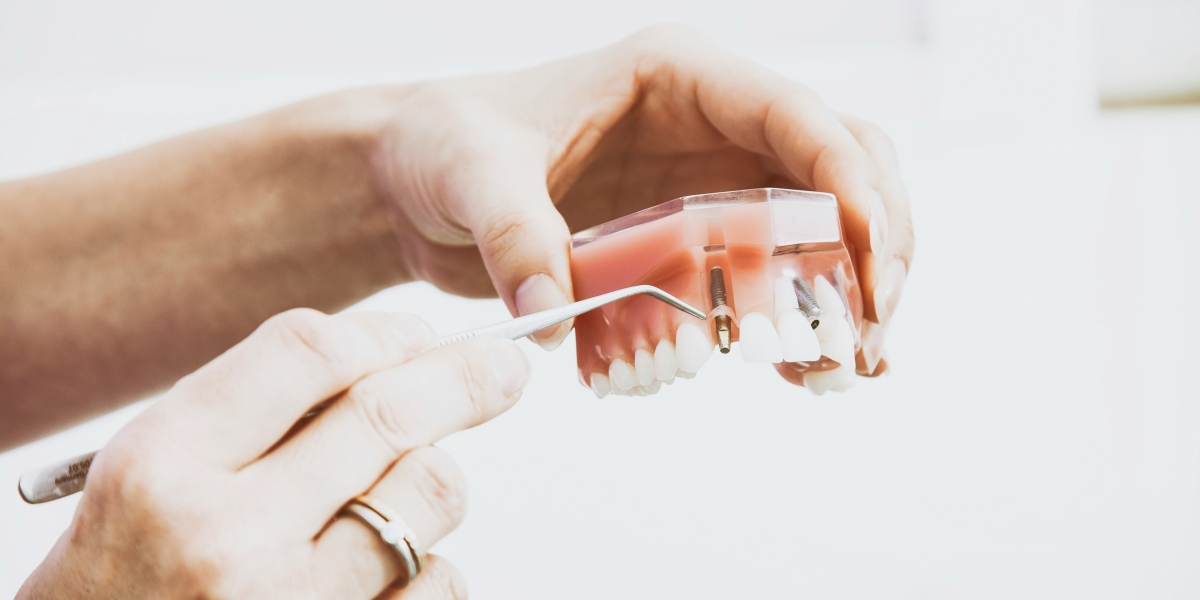By: Jacob Maslow
The last step in the dental implant process is when your prosthodontist finally places your customized dental crown on your healed implant and abutment. After this step, you’re ready to show the world your bright new smile.
The crown is the visible part of the implant restoration that perfects your smile, helps you speak, and lets you bite and chew. Dental crowns are usually crafted from durable materials like zirconia or porcelain, but they need proper care to last a long time. Follow these tips to keep your dental implant crowns looking and feeling great for years to come after getting dental implants in Duluth.
Brush twice a day
It’s important to brush your natural teeth and dental implant crowns at least twice a day. Some people prefer to brush their teeth after every meal. This can be beneficial with the right brushing technique.
Remember to:
- Hold your brush at a 45-degree angle against your gumline when you brush
- Use gentle circular motions while brushing
- Use light pressure to avoid scratching the crowns
- Avoid hard scrubbing or back-and-forth motions
You can use the same brushing technique for your natural teeth as you do for implant restorations like implant-supported bridges and fixed full arch dental implants. The cost of full-mouth dental implants can be high, so you want to ensure you’re giving your artificial teeth the best care.
Practice other forms of oral hygiene
While brushing is an essential component of any oral hygiene routine, there are other steps you can take to keep your natural teeth and implant restorations healthy and functional.
- Interdental cleaning: Use dental floss or a water pick to remove any food particles stuck between your teeth.
- Brush your tongue: Brush your tongue and the insides of your cheeks regularly to remove bacteria. You can also use an antibacterial mouthwash to reduce bacteria in your mouth.
- Avoid abrasive products: Some teeth-whitening toothpastes and firm-bristled toothbrushes can damage the surface of your dental crowns. Get advice from your dentist on the best products to use for your crowns and avoid harsh and abrasive oral care products.
While dental crowns can’t get cavities the way natural teeth are, plaque and bacteria buildup can raise the risk of tooth implant failure. Good oral hygiene is crucial for the success of your dental implants and crowns.
Avoid staining foods
Like your natural teeth, dental crowns can get stained and discolored from overconsumption of staining foods and drinks. Tea, coffee, wine and certain other foods and drinks have the potential to stain your dental crowns. It’s best to consume such items in moderation and to brush your teeth or rinse your mouth soon after consumption.
Smoking or chewing tobacco can also stain your teeth. Steer clear of these habits to give your crowns and implants the best chances of success.
Protect crowns from bruxism
Bruxism refers to teeth grinding, which can be incredibly damaging to dental crowns. Teeth grinding can wear crowns down and cause chipping and fractures. Not only does this compromise your crown and implant, but it can also damage healthy teeth that grind against dental implant crowns. If you suspect teeth-grinding problems, talk to your implant specialist. You may be told to wear a nightguard to help protect your crowns. Oftentimes, patients are unaware of their bruxism problem, which is why the next step is so important.
Get regular dental check-ups
Regular visits to the dentist are very important for people with dental crowns. Not only does the dentist check the health and functionality of your natural teeth, but they also check on the restoration and look for signs of infection and wear. A dentist can usually see indications of poor oral hygiene or teeth grinding and can make recommendations to prevent further harm. Getting regular dental check-ups may help you find and treat oral health and dental crown problems before they get worse.
Our tips for good oral hygiene are the key to maintaining your dental implant crowns for years. From brushing twice a day and protecting your crowns from bruxism to visiting the dentist regularly, aim to promote the longevity of your crowns so you can help them continue to look natural and function well.
Disclaimer: The information provided in this article is for general informational purposes only and is not intended as medical advice. While the tips discussed can help in maintaining dental implant crowns, individual needs and recommendations may vary. For personalized guidance and treatment, it is important to consult with a qualified dental professional or prosthodontist.
Published by Jeremy S.


















